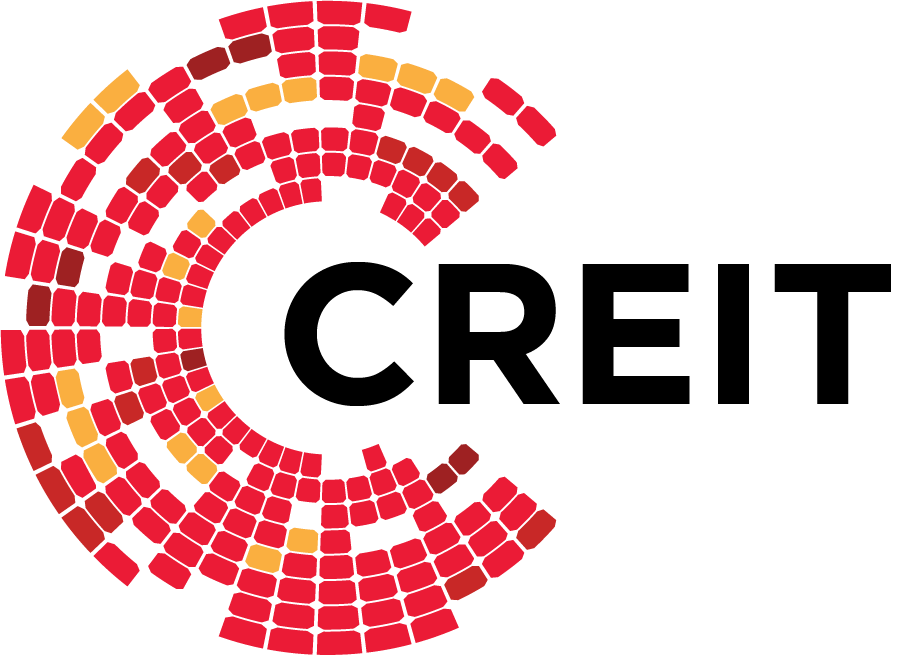Investing in real estate has traditionally been seen as a solid path to building wealth. Nonetheless, the thought of managing properties can be intimidating for many. That's where real estate investment trusts (REITs) come into play. REITs offer a streamlined and manageable way to invest in real estate without the complexities of direct ownership.
Curious about how REITs work and what they can offer? In this blog, we’ll delve into the fundamentals of REITs, highlight their advantages, and outline essential considerations for prospective investors. Read on.
What is a Real Estate Investment Trust?
A real estate investment trust (REIT) is a company that owns, operates, or finances income-generating real estate properties. It usually allows individuals to invest in large-scale, income-producing buildings without needing to buy properties directly. In simple terms, they can earn a share of the income produced through commercial real estate ownership — without actually having to buy, manage, or finance any properties.
The Rise of REITs in the Philippines
Since the first REIT was introduced in the Philippines in 2020, this investment option has grown rapidly, attracting many individual investors. In fact, the sector has seen substantial growth, driven by increasing investor interest and supportive regulatory frameworks
The Philippine government has introduced favorable policies to encourage the growth of REITs . In addition, the Securities and Exchange Commission (SEC) and the Philippine Stock Exchange (PSE) have implemented regulations that make it easier for companies to list REITs, ensuring transparency and investor protection. These regulations have made the REIT market more attractive to both local and international investors.
With these developments, REITs in the Philippines have demonstrated steady performance in recent years. And with reliable dividend payouts and a strong track record of stability, they have become a preferred investment choice. This is evident in the growing number of REIT listings and the increasing participation of institutional investors.
And if ongoing government support and rising investor interest continue, REITs are poised to play a more significant role in the Philippine economy in the years ahead.
Advantages of Investing in REITs in the Philippines
If you're considering investing in REITs in the Philippines, you might be wondering if they are a good fit for your investment portfolio. This is a crucial consideration, especially as the REIT market in the Philippines is still relatively new. So to help you make an informed decision, here are several reasons why investing in REITs in the Philippines could be a smart choice for you:
1. REITs are an excellent way to diversify your investor portfolio.
Investing in REITs allows you to diversify your investment portfolio by adding real estate assets to your holdings. Diversification is a strategy to reduce risk by spreading investments across various asset classes. Since real estate often behaves differently from stocks or bonds, adding REITs to your portfolio can help balance out potential fluctuations in other investments and provide more stable returns.
2. Assets of REITs are usually handled by real estate professionals.
REITs are managed by seasoned real estate professionals who have expertise in acquiring, managing, and disposing of properties. These professionals handle all the operational aspects of the real estate investments, including property management and leasing. This means that as an investor, you benefit from their expertise without needing to manage the properties yourself.
3. REIT shares are easily traded on the stock exchange.
REIT shares are listed on the stock exchange, making them highly liquid and easy to trade. This liquidity means you can buy or sell REIT shares with relative ease compared to direct real estate investments, which can be more cumbersome and time-consuming to transact. This feature provides investors with flexibility and the ability to quickly adjust their investments based on market conditions.
4. Dividends are at least 90% of distributable income annually.
REITs are required by law to distribute at least 90% of their distributable income to shareholders in the form of dividends. This high dividend payout ratio ensures that investors receive a significant portion of the income generated by the underlying real estate assets. As a result, REITs can provide a steady stream of income for investors, making them an attractive option for those seeking regular returns.
5. REITs provide transparent info on prices, strategies, and performance.
REITs are required to provide detailed and transparent information about their pricing, investment strategies, and performance. This transparency helps investors make informed decisions by allowing them to assess the REIT’s financial health, understand its strategic goals, and track its performance over time. This level of disclosure is essential for building trust and ensuring that investors are fully aware of how their money is being managed.

Potential Risks and Challenges
Although REITs in the Philippines have been gaining popularity due to their numerous advantages, they also come with potential risks and challenges that you should consider before making a decision. Here are some for example:
1. Like mutual funds and stocks, REIT returns aren't guaranteed.
Just like mutual funds and stocks, the returns on REIT investments are not guaranteed. This means there is no assurance that you will earn a profit or even recover your initial investment. The performance of REITs can fluctuate based on various factors, including market conditions, economic changes, and the management of the underlying properties. Investors should be prepared for the possibility of both gains and losses.
2. REIT stock values can be sensitive to changes in interest rates and property values.
REIT stock prices can be influenced by fluctuations in interest rates and property values. When interest rates rise, the cost of borrowing increases, which can negatively affect REIT profitability and stock prices. Similarly, changes in property values can impact the valuation of the REIT’s assets and, consequently, its stock price. These sensitivities can lead to increased volatility in REIT investments.
3. Dividends fall if occupancy rates decrease and vacancy rates increase.
The dividends paid by REITs are derived from rental income generated by their properties. If occupancy rates decrease or vacancy rates increase, rental income can decline, leading to lower dividends. This means that in times of high vacancies or lower property demand, investors may receive reduced dividend payouts, impacting their expected income from the investment.
4. Lack direct property ownership and have limited control over investment.
Investing in REITs means you own shares in a company that holds and manages real estate, rather than directly owning properties yourself. This lack of direct ownership means you have limited control over the individual properties and investment decisions made by the REIT’s management. Investors rely on the REIT’s management team to make decisions and manage the properties effectively.
5. REITs in the Philippines are subject to value-added tax (VAT).
In the Philippines, REITs are subject to value-added tax (VAT) , which can affect the overall returns on investment. VAT is a consumption tax imposed on the sale of goods and services, and for REITs, it can impact the profitability of property transactions and management fees. This additional tax burden can reduce the net income available for distribution to investors and potentially affect the attractiveness of REIT investments.
Top-Performing REITs in the Philippines in 2024
After making the decision to invest in REITs, the next step is to determine where to place your money. With various options available, selecting the right REIT can significantly impact your investment returns. Here are 4 of the top-performing REITs in the Philippines to consider:
1. Citicore Energy REIT Corporation (CREIT)
CREIT is the award-winning and the nation's first renewable energy REIT that specializes in renewable energy assets like solar farms, offering stable income from long-term leases.
2. Ayala Land REIT (AREIT)
Managed by Ayala Land, it focuses on prime office spaces with a strong track record and consistent dividends.
3. Filinvest REIT Corp. (FILRT)
Part of the Filinvest Group, it specializes in office spaces in business districts, offering stable earnings and attractive yields.
4. Megaworld REIT (MREIT)
Managed by Megaworld Corporation, it includes office and retail spaces within integrated townships, providing competitive yields and growth potential.
Factors to Consider When Choosing the Best REIT
Aside from checking your options, choosing the best REITs involves evaluating several key factors to ensure that the investment aligns with your financial goals and risk tolerance. Here’s a guide to help you make an informed decision:
1. Portfolio Quality
Examine the quality of the properties in the REIT’s portfolio. Properties in prime locations with high occupancy rates are more likely to generate consistent income and appreciate in value.
2. Dividend Yield
Look at the dividend yield history of the REIT. A higher yield indicates better income returns. However, balance this with the risk of the underlying assets.
3. Management Team
The experience and track record of the REIT’s management team play a crucial role in its success. A strong team can effectively manage the properties, maintain high occupancy rates, and maximize returns.
4. Growth Potential
Consider the growth potential of the REIT’s portfolio. Are there opportunities for expansion? Does the REIT have a pipeline of new property acquisitions? These factors can contribute to long-term capital appreciation.

Start Your Investment with Citicore Energy REIT Corp.
Overall, investing in REITs in the Philippines presents a compelling opportunity for diversifying your portfolio and capitalizing on the country's expanding real estate market. With the potential for steady income and capital growth, Philippine REITs offer an attractive alternative to conventional investment options.
Ready to make your investment? Consider CREIT, the nation's first renewable energy REIT. CREIT not only provides the traditional benefits of real estate investment; it also addresses the rising demand for sustainable and eco-friendly energy solutions.
Take advantage of this unique opportunity to lead the charge in renewable energy investment. Explore CREIT’s portfolio today and be a part of the movement toward a greener, more sustainable future.


